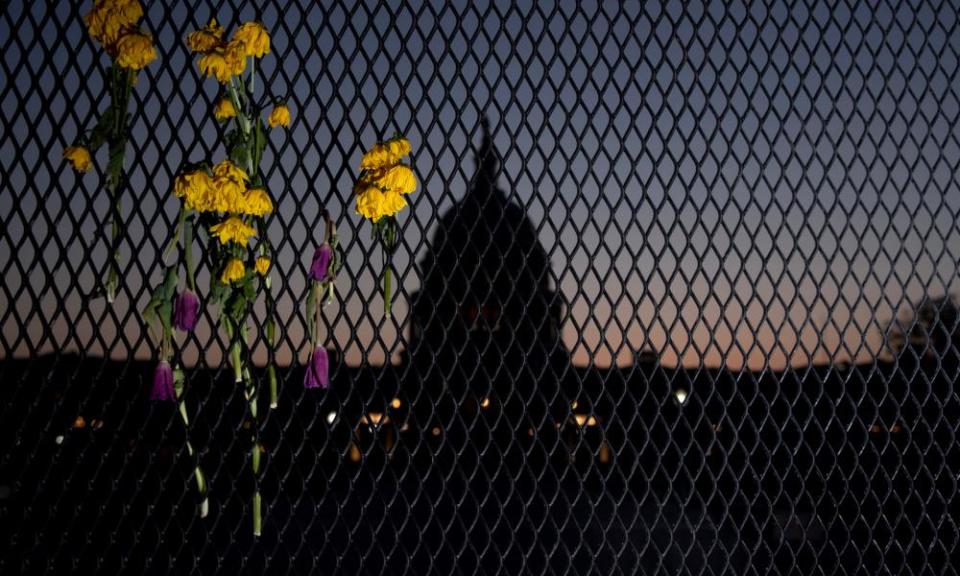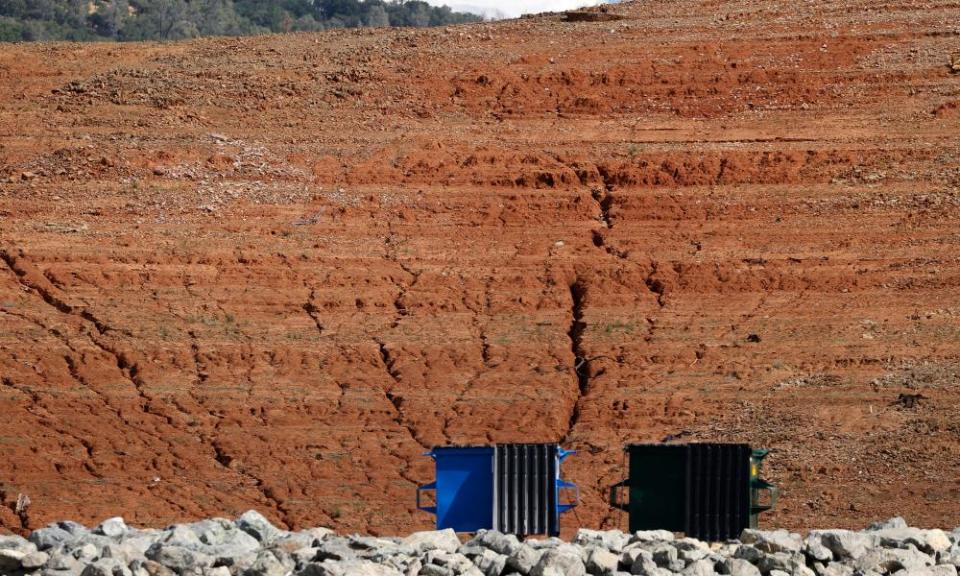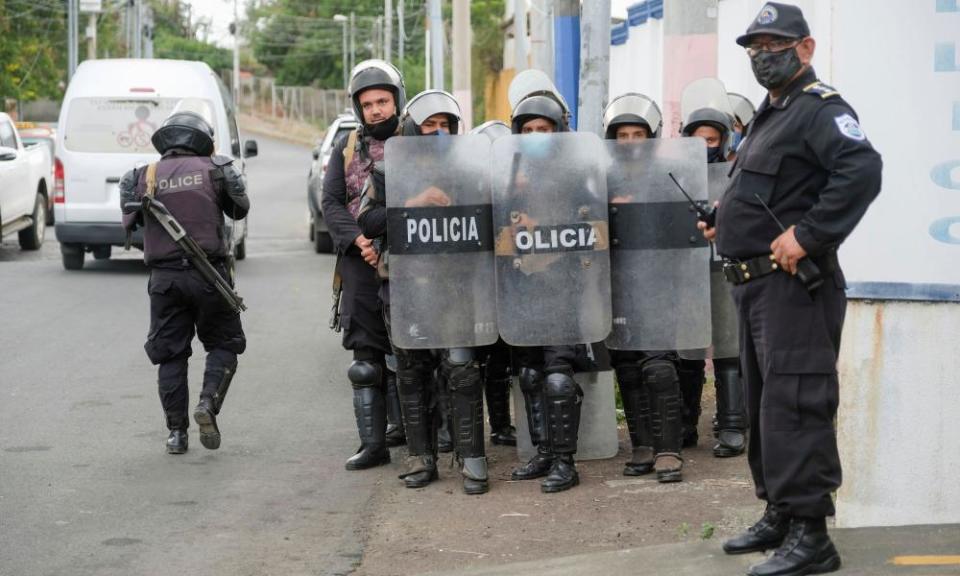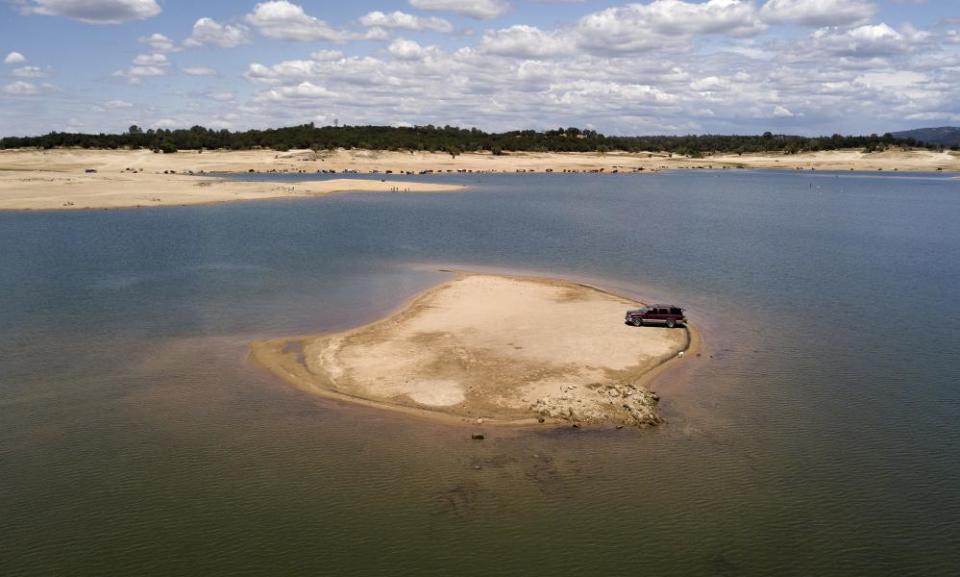First Thing: anticipation builds for Biden-Putin summit
Good morning.
Anticipation is building as Joe Biden prepares to meet Vladimir Putin at a Geneva summit on Wednesday, but there is no sign of a thaw in Russia-US relations.
President Biden has made no secret of the thoroughness of his preparations for the summit – even trailing the meeting to cheering US troops when he arrived in the UK last week – and the first lady, Jill Biden, has said he is “over-prepared”.
The White House says Biden is under no illusions about a “Russian reset”, writes Moscow correspondent Andrew Roth, but the president believes they have issues such as arms control and potentially the climate emergency to discuss and wants to re-establish a routine strategic dialogue.
Biden, who is on his first foreign trip as president and on Monday attended the Nato summit in Brussels, has said the US is “not looking for conflict” with Russia. Putin, meanwhile, said in an NBC News interview aired on Monday that he would consider starting a dialogue.
Also in the NBC interview, Putin refused to guarantee that the opposition leader Alexei Navalny would get out of prison alive.
The summit comes after the disastrous 2017 meeting between Putin and Donald Trump in Helsinki. Analysts say the upcoming summit will be “boring”.
China has hit back at Monday’s Nato communique – which said the country presents “systemic challenges” – saying it shows a “cold-war mentality”. China affairs correspondent Vincent Ni explains why China is so furious.
The White House has released its first national strategy for domestic terrorism

The White House on Tuesday published its first national strategy for responding to domestic terrorism, five months after the 6 January attack on the US Capitol.
The national security council framework describes the domestic terrorism threat as more serious than potential attacks from outside the US, but also underlines the need to protect civil liberties and states that the approach must be “ideologically neutral”.
How will it work? The strategy has four pillars, writes Washington DC bureau chief David Smith, which include: understanding and sharing information about domestic terrorism threats, preventing Americans from being recruited, incited and mobilised, deterring and disrupting activity before violence and long-term contributing issues.
Meanwhile, Mitch McConnell, the Senate minority leader, said on Monday that it was “highly unlikely” he would allow Biden to fill a supreme court vacancy in 2024, a presidential election year, if Republicans regained control of the chamber.
Extremist Republican congresswoman Marjorie Taylor Greene apologized for comparing the House mask rule to the Holocaust.
Plus, how Republicans hold near total control – including the governorship and the legislature – in 23 US states.
The US south-west is in the grip of a dangerous heatwave with temperatures higher than 120F

The US south-west is suffering a dangerous heatwave with temperatures in some areas expected to exceed 120F (49C) this week and state records to be broken.
Much of Utah, southern and central California, Nevada and Arizona are expected to be affected – exacerbating existing drought conditions and increasing the risk of new wildfires. The National Weather Service (NWS) predicts record-breaking temperatures in Nevada and Arizona.
How many people are affected? More than 48 million people across the west are under heat advisory watches of NWS warnings, writes Gabrielle Canon.
“This type of heat is unusual for the month of June,” said NWS meteorologist Julie Malingowski. Heatwaves in the western US usually come in July and August.
The west is already in the middle of a severe drought and the National Interagency Fire Center has declared significant fire potential across six states.
In other news …

Nicaragua’s Sandinista rulers have launched an unprecedented pre-election crackdown on the country’s opposition with a series of arrests of prominent critics of president Daniel Ortega and his wife, vice-president Rosario Murillo. Six opposition figures were arrested at the weekend – including the former health minister Dora María Téllez and former general Hugo Torres – bringing the total to 13, including four possible presidential candidates in November’s election.
Scientists have converted plastic bottles into vanilla flavouring using genetically engineered bacteria, marking the first time a useful chemical has been created from waste plastic. Plastics lose about 95% of their value after one use, but this breakthrough could help make recycling more attractive.
Toxic “forever chemicals” are widespread in top makeup brands in the US and Canada, a study has found. Researchers found evidence of PFAS, or per- and polyfluoroalkyl substances, in more than half of 231 product samples – including lipstick, mascara and foundation. A scientist at the Green Science Policy Institute said researchers were surprised by how many products contain the dangerous chemical.
Investigators in Mexico City have found 3,787 bone fragments, believed to be from 17 different victims, under the house of a suspected serial killer. Prosecutors have suggested they could find more as authorities plan to search the soil beneath other rooms of the property.
Stat of the day: the G7 has pledged just 1bn of the 11bn vaccines required to immunise low- and middle-income countries
This suggests that the west cannot immunize the world alone, writes Sophie Zinser. But she argues that despite doubts from critics, Chinese vaccines work and the west may have no choice but to collaborate in order to vaccinate the world. So far, only 6% of the world is fully vaccinated.
Don’t miss this: how America’s largest evangelical denomination could move even further right
As thousands of Southern Baptists from across the US gather in Tennessee this week to elect their next president, there are deep divides over addressing systemic racism and sexual conduct. America’s largest evangelical Christian denomination could be pushed even further to the right, reports Carol Kuruvilla.
Last Thing: Has California’s drought solved the mystery of a 1965 plane crash?

On New Year’s Day, 1965, a Piper Comanche 250 crashed into the water near Folsom Dam following a midair collision and the missing plane and its three passengers were never found. But 56 years later, amid historically low water levels in Folsom Lake due to California’s devastating drought, an underwater surveying company came across a plane while testing equipment. Details of the plane are still unclear, but local news outlets believe it could well be the remains of the 1965 crash.
Sign up
First Thing is delivered to thousands of inboxes every weekday. If you’re not already signed up, subscribe now.
Get in touch
If you have any questions or comments about any of our newsletters please email newsletters@theguardian.com

 Yahoo Finance
Yahoo Finance 